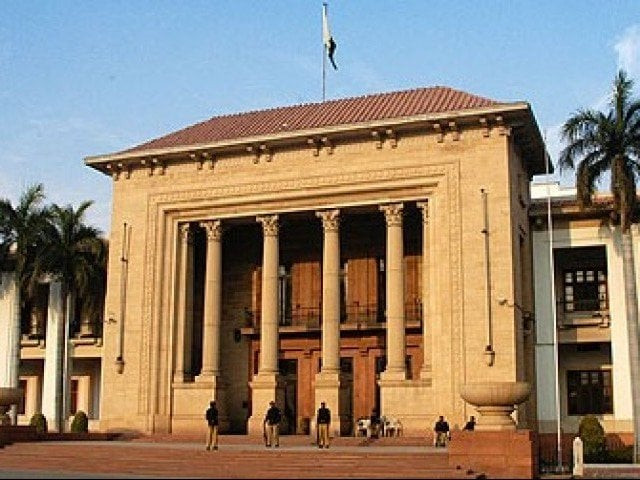Reservations expressed over controversial law
Rights official says the law could fan sectarian tensions

Legal experts and human rights and political activists on Friday expressed their reservations on the recently-passed Punjab Tahaffuz-e-Bunyaad-e-Islam Bill 2020, observing that it severely affects the constitutionally guaranteed freedoms of citizens, stifles the growth of scholarship, and can potentially ignite sectarian tensions.
They were speaking at an online discussion hosted by the Islamabad Policy Institute (IPI) on Friday.
The bill had been passed by the Punjab Assembly last week but was returned by Governor Chaudhry Muhammad Sarwar to the provincial legislature for a review and building consensus on it after it came under heavy criticism from the civil society and representatives of the Shia sect.
Human Rights Commission of Pakistan (HRCP) Secretary-General Harris Khalique, while taking part in the discussion, said the passing of such a controversial bill by the Punjab Assembly is reflective of a deeper malaise which the state and society suffer from.
This particular bill, Khalique warned, could fan religious and sectarian tensions since it targeted a particular sect.
Moreover, he said that giving absolute power to a bureaucrat to ban and confiscate any reading material from anywhere is both ridiculous and undemocratic.
Lawyer Asad Jamal, who is also a visiting fellow at IPI, contended that the bill essentially seeks to achieve “sectarian” objects based on discrimination against minorities, but at the same time, it also seeks to destroy freedom of the book trade as well as academic freedom and critical thinking.
“The very fact that some self-serving politicians allowed this poisonous bill to be introduced and passed in the Punjab assembly shows how vulnerable the politics of the province is to the manipulations of those who want to turn this province into the centre of sectarian hatred,” he said, adding that it has already sown seeds of distrust.
Suggesting a way forward, he said the least the political elite can do now is to stop it from being reintroduced in an amended form as it violates some of the most cherished values and fundamental rights incorporated in articles 10-A, 18, 19, 20, and 25 of the Constitution.
Lawyer Imaan Mazari-Hazir, who was also moderating the session, described the bill as draconian, which breached Constitutionally-safeguarded fundamental rights to expression; information; profession or trade; equal treatment and protection of the law; and to profess religion and to manage religious institutions.
“Owing to the wide scope of arbitrary authority and discretion vested in the DGPR, the Bill is also in contravention of Article 10-A of the Constitution, being violative of the principle of audi alteram partem (listen to the other side). Further, the bill is also in violation of the international human rights obligations concerning freedom of expression that Pakistan has, she maintained.
Published in The Express Tribune, August 1st, 2020.



















COMMENTS
Comments are moderated and generally will be posted if they are on-topic and not abusive.
For more information, please see our Comments FAQ